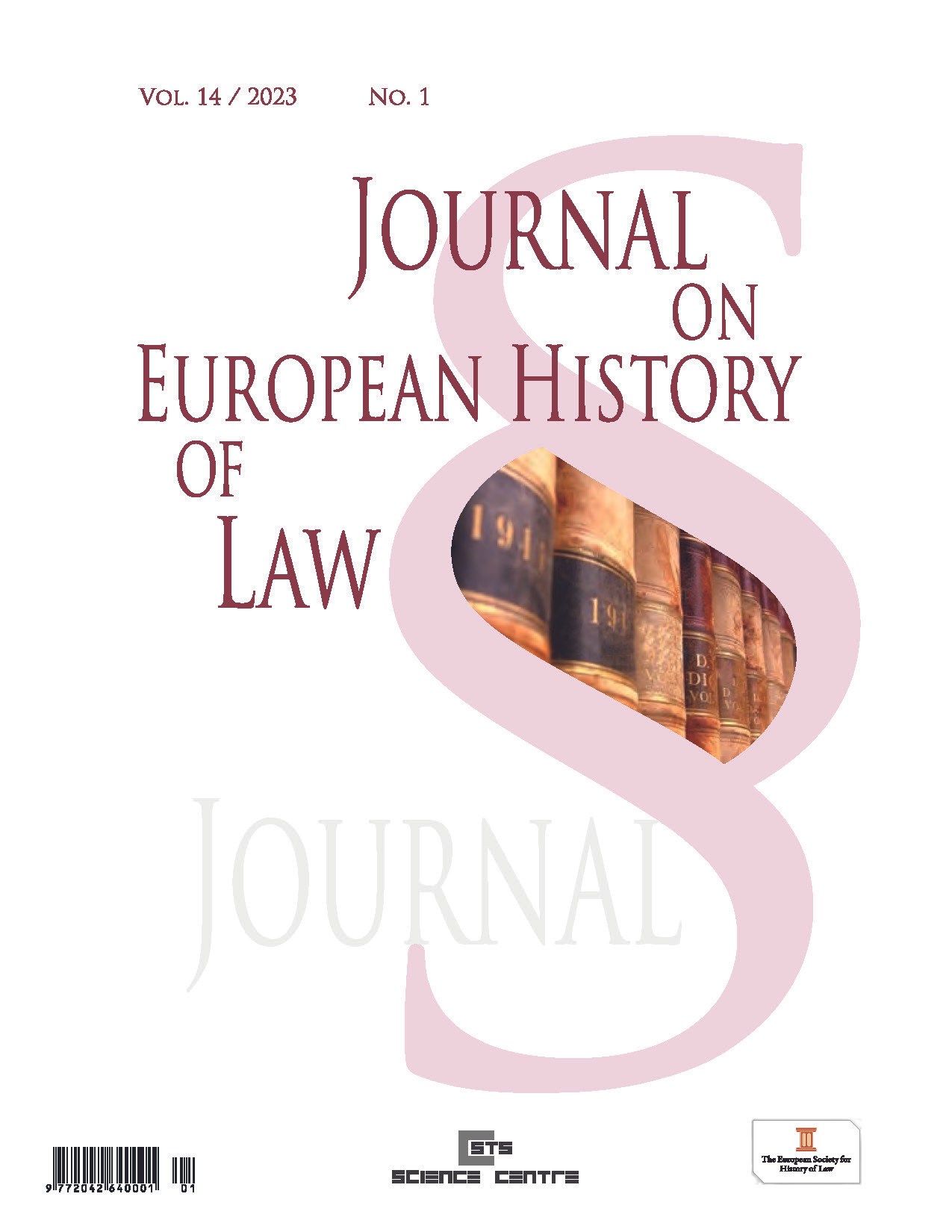Natural Law and the Defense of Freedom of Trade and Navigation in Hugo Grotius’ Mare Liberum (1609) with Regard to the Seizure of the Portuguese Carrack Santa Catarina by the Dutch during the Reign of Philip III of Spain (1603)
Natural Law and the Defense of Freedom of Trade and Navigation in Hugo Grotius’ Mare Liberum (1609) with Regard to the Seizure of the Portuguese Carrack Santa Catarina by the Dutch during the Reign of Philip III of Spain (1603)
Author(s): Carlos SardinhaSubject(s): History, Law, Constitution, Jurisprudence, History of Law, Civil Law, 16th Century, 17th Century, 18th Century, Law on Economics
Published by: Evropská společnost pro právní dějiny, z.s.
Keywords: Papal Power; mare clausum; mare liberum; Natural Law; Law of Prize and Booty; freedom of trade and navigation; Iberian Union;
Summary/Abstract: The conception of a Christianity submitted to Papal Power, also indirectly, on every matter concerning the spiritual well-being of the Faithful and implying a lordship of the whole world including the regulation of the relations among Christian princes and between Christians and infidels, caused the Pope to decide on the recognition of the rights of the Portuguese Crown over the discovered lands and seas. Further, according to several commentators like Baldus (1327-1400) every State could under Civil Law (iure civili) occupy part of the sea, exercising sovereignty over it “as to jurisdiction and protection” (quoad jurisdictionem et protectionem). The Portuguese Crown enjoyed a right of quasi possessio over the whole of the maritime area of the Estado da Índia (in English, State of India). The Portuguese Crown forbade to all and every person of whatsoever estate and condition, including foreigners, to sail to the lands and seas of Guinea and India and all other Portuguese lands, seas and places conquered by Portugal using ships other than the Portuguese under penalty of death and asset forfeiture. Therefore, we can say that from the establishing of the Estado da Índia flowed the imposition of the system of mare clausum upon the Indian Ocean economy. On the other hand, Hugo Grotius’ Mare Liberum (1609) consists in a coherent refutation of the arguments put forward by the Portuguese to justify their claim to mare clausum. He stresses that no one can own the sea, no one can forbid another to sail without being guilty of wrong. Because of this, the Portuguese did not hold property over the East, they had no right to exclude the Dutch from sailing to the East Indies and do business with the Indians because this right belongs to all peoples. The Chapter 11 of Grotius’ work De Indis (that is, De Jure Praedae) helps us to see the legal controversy over the seizure of the Santa Catarina from the viewpoint of a continuous and evident violation of natural law perpetrated by the Portuguese. This violation of natural law justified Admiral Van Heemskerck’s initiative of punishing the inhuman economic and trade practices of the Portuguese with the aim of restoring the much-needed freedom of trade and navigation in the region.
Journal: Journal on European History of Law
- Issue Year: 14/2023
- Issue No: 1
- Page Range: 62-69
- Page Count: 8
- Language: English

